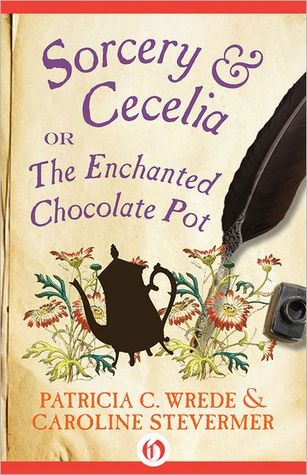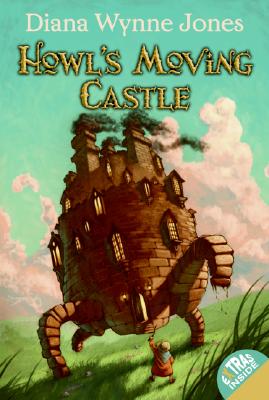 |
| Feiwel & Friends |
- Read a book over 500 pages long.
- Read a book of historical fiction set before 1900.
- Read a book that was adapted into a movie, then watch the movie. Debate which is better.
Shortly after the New Year, I finished reading Winter by Marissa Meyer. At just over 800 pages, it fit nicely into the "over 500 pages" category--and I couldn't be more excited. As the conclusion of the Lunar Chronicles, which spanned four books (including Cinder, Scarlet, and Cress) and spawned a novella (Fairest) and a short story collection (Stars Above), Winter is the book I've been waiting all year to read.
In Meyer's latest novel, you have the opportunity to meet Winter, princess of Luna. She is the step-daughter of Queen Levana, ruling monarch of the Lunar colony; moreover, she's the cousin of the lost princess, Selene (who's very important to the story, trust me). Several years ago, she vowed never to use her manipulative powers again--which means she's slowly going crazy--and she quietly rebels against the queen.
 |
| Open Road Media |
Next, I read Sorcery and Cecelia; Or the Enchanted Chocolate Pot by Patricia C. Wrede and Caroline Stevemer. Although Wrede and Stevemer's novel technically falls into the realm of fantasy, I think (read: decided) it can also be construed as a historical fiction novel. Being set in England in 1895, it's at the very cusp of the 19th century. So, yes, I think it qualifies.
Sorcery and Cecelia is a strangely pleasing novel. Think Jane Austen, but throw in a bit of wizardry and magic for spice. It's an enjoyable little story that features the exchange of letters between Cecelia and Kate, cousins who share an adventurous spirit--and a fiery attitude. Their correspondence begins at a bit of a slow pace, but once the schemes of Miranda Tanistry begin to unfold, the adventure picks up pace and soon Kate and Cecelia are drawn into a twisted web of danger and deception--and, of course, intrigue with a distinctively Victorian flavor.
It's an immensely satisfying story, and I was ultimately thrilled by the novel. It appealed to my love of classic English literature and fantasy without compromising on either one. Although I was initially hesitant to begin Wrede and Stevemer's novel (for the slow pace, mind), I'm glad I stuck with the story and finished it. It was surprisingly enjoyable and, I'll point out, exceedingly fun.
Last, I read Howl's Moving Castle by Diane Wynne Jones. Finding a book that I wanted to read and watch onscreen proved a trifle more difficult than either entry listed above. Howl's Moving Castle is both a classic young readers novel by Jones and an animated movie directed by Hayao Miyazaki. Having watched Miyazaki's movie in the past, but needing a refresher, I decided it would be appropriate to pick up Howl's Moving Castle and decide which is ultimately best.
Except I don't really have an immediate answer.
Howl's Moving Castle as a book and Howl's Moving Castle as a movie are two very different beasts. First, they are very different formats and have their own merits as such; two, they tell different stories; and, three, the characters feel completely different that I have a hard time classifying them as the same individuals. For instance, in the book, Sophie is quiet and mousy as a young woman, but she's an outspoken curmudgeon when she's morphed into an old woman; however, in the movie, she's pretty quiet throughout and she's more like a doting grandmother, rather than the nosy old grouch in the book.
Likewise, the stories have an entirely different flavor to them. In the book, the Witch of the Waste is the real danger. Her machinations have directed the kingdoms toward disaster and put Howl's loved ones in grave danger (and, yes, Howl does have loved ones outside Ingary). Howl is, in fact, running from his responsibilities and putting a number of miles between himself, the King of Ingary, and the Witch of the Waste--and the curse she's heaped upon him. But in the movie, Howl is caught in the midst of a war and the Witch of the Waste, while still a daunting figure, is certainly not up to challenging Howl, less so the Wizard Suliman (who is of a different gender entirely in the novel, but that's another story).
Anyway, as I said, I can't really pick which one is better. Miyazaki's creation is wonderful: beautiful animation, an intriguing and compelling story, and a whole heaping of creativity that takes a story and gives it wings--quite literally. And Jones's book is absolutely lovely: magical and creative, full of quirky characters and fabulous stories and a weaving, winding plot that's sure to keep readers on their toes. Both are equally wonderful and entertaining, but if I lean more toward appreciating the book, I can only say I like it best for the fact that I can physically hold it in my hands and let my imagination truly wander.
 |
| Greenwillow Book |
Last, I read Howl's Moving Castle by Diane Wynne Jones. Finding a book that I wanted to read and watch onscreen proved a trifle more difficult than either entry listed above. Howl's Moving Castle is both a classic young readers novel by Jones and an animated movie directed by Hayao Miyazaki. Having watched Miyazaki's movie in the past, but needing a refresher, I decided it would be appropriate to pick up Howl's Moving Castle and decide which is ultimately best.
Except I don't really have an immediate answer.
Howl's Moving Castle as a book and Howl's Moving Castle as a movie are two very different beasts. First, they are very different formats and have their own merits as such; two, they tell different stories; and, three, the characters feel completely different that I have a hard time classifying them as the same individuals. For instance, in the book, Sophie is quiet and mousy as a young woman, but she's an outspoken curmudgeon when she's morphed into an old woman; however, in the movie, she's pretty quiet throughout and she's more like a doting grandmother, rather than the nosy old grouch in the book.
 |
| Studio Ghibli |
Anyway, as I said, I can't really pick which one is better. Miyazaki's creation is wonderful: beautiful animation, an intriguing and compelling story, and a whole heaping of creativity that takes a story and gives it wings--quite literally. And Jones's book is absolutely lovely: magical and creative, full of quirky characters and fabulous stories and a weaving, winding plot that's sure to keep readers on their toes. Both are equally wonderful and entertaining, but if I lean more toward appreciating the book, I can only say I like it best for the fact that I can physically hold it in my hands and let my imagination truly wander.
No comments:
Post a Comment